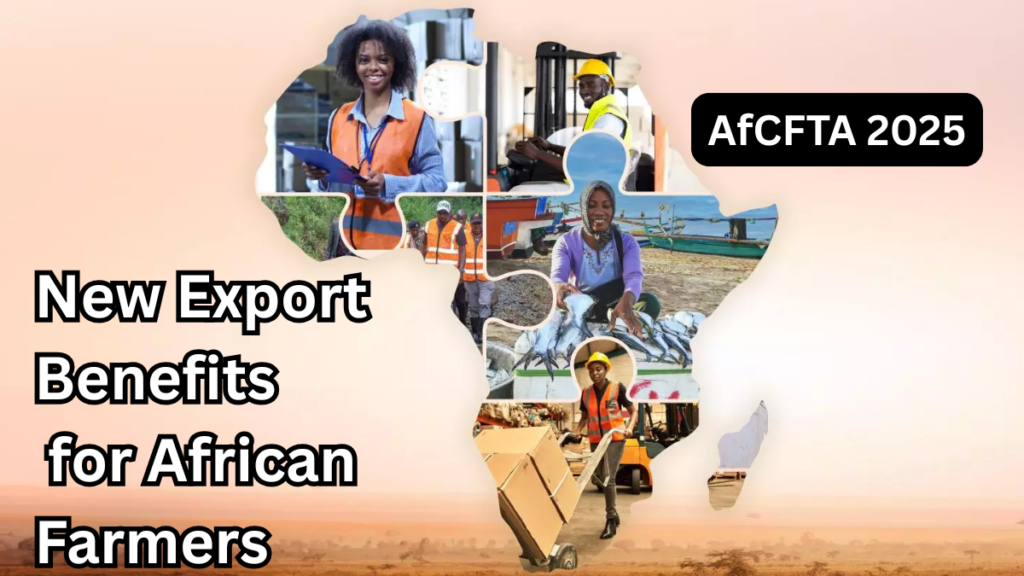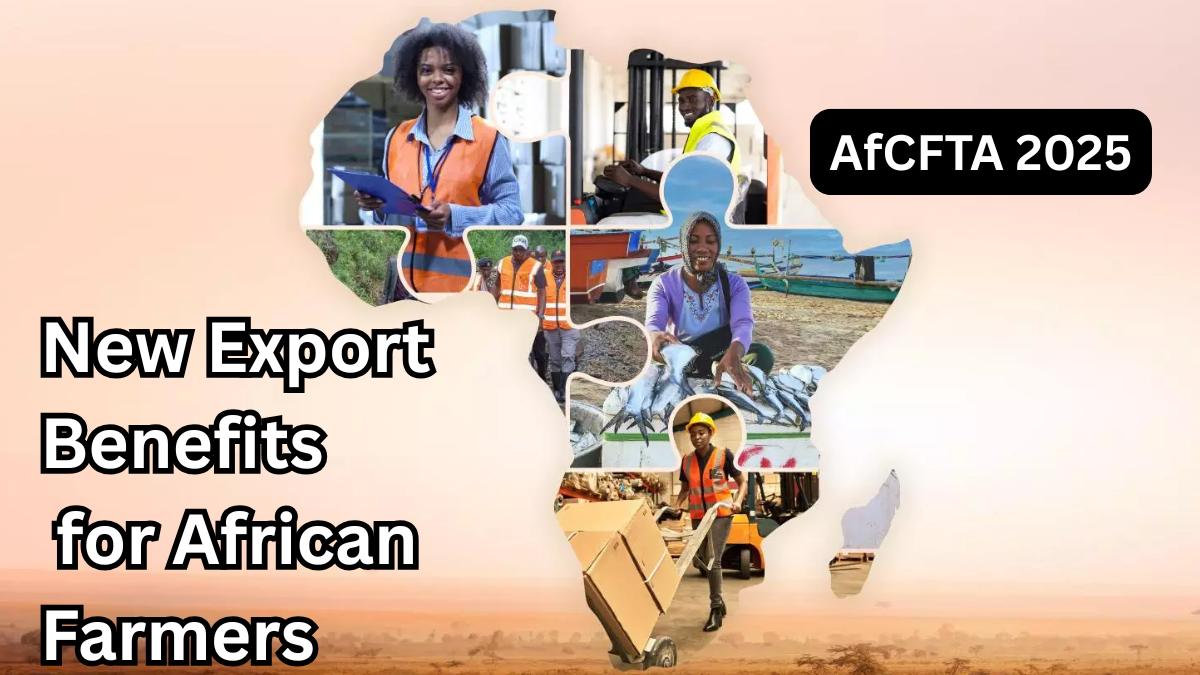The African Continental Free Trade 2025 (AfCFTA) is opening exciting doors for local farmers across Africa. With improved trade agreements, reduced tariffs, and better market access, this initiative promises to boost the agricultural economy and create real Export Opportunities for Farmers.
Let’s explore what this means for African farmers and how they can benefit.

What is the African Continental Free Trade 2025?
The African Continental Free Trade 2025 is a continent-wide trade agreement designed to make it easier for African countries to trade with each other. It focuses on:
-
Eliminating trade barriers
-
Reducing tariffs
-
Improving cross-border trade
-
Promoting regional economic growth
For farmers in Africa, this opens up new channels to export their products quickly and cost-effectively.
Key Export Benefits for African Farmers
Farmers now have more chances to grow their businesses. Here’s what they can expect:
Lower Export Costs
-
Reduction in tariffs on agricultural products
-
Cheaper cross-border logistics
-
Lowered export taxes
Access to New Markets
-
More African countries now open to free trade
-
Increased Export Opportunities for Farmers to sell products across the continent
Better Trade Infrastructure
-
Improved transportation systems
-
Enhanced storage and processing facilities
-
Easier border procedures
Increased Farmer Profits
-
Higher selling prices in new markets
-
Less reliance on local buyers
-
Potential to sign international contracts
Summary of AfCFTA 2025 Export Benefits
| Benefit | Details |
|---|---|
| Lower Export Costs | Reduced tariffs and logistics expenses |
| New Market Access | Trade across multiple African nations |
| Improved Infrastructure | Better roads, storage, and border access |
| Higher Profit Margins | More buyers, higher prices |
How Farmers Can Tap into the New Export Opportunities
Here are practical ways for farmers to take advantage of Export Opportunities for Farmers under the African Continental Free Trade 2025:
-
Join Farming Cooperatives: Groups can negotiate better export deals.
-
Stay Updated on Regulations: New trade policies will vary by country.
-
Invest in Quality: High-quality produce has higher export demand.
-
Use Export Support Services: Many countries are offering training and financial support.
Why This Matters for Africa’s Future
The African Continental Free Trade 2025 isn’t just a policy – it’s a powerful movement toward regional unity and shared growth. For farmers, it’s an opportunity to:
-
Compete globally
-
Build stronger agricultural networks
-
Contribute to the continent’s food security
The Export Opportunities for Farmers created by this trade agreement can help lift thousands out of poverty and spark sustainable growth.
FAQs
1. How does the African Continental Free Trade 2025 specifically help small farmers?
The agreement reduces export taxes and simplifies trade procedures, making it easier and more affordable for small farmers to sell their products in new markets.
2. Which countries are part of the African Continental Free Trade 2025?
Almost all African Union member countries are participating, creating one of the world’s largest free trade areas.
3. What products can farmers now export more easily?
Crops like coffee, cocoa, maize, fruits, vegetables, and processed foods are now seeing more export opportunities under the new framework.
4. Do farmers need special permits to export under the AfCFTA 2025?
Farmers will still need basic export documentation, but the process has been simplified, and support is now available through local trade offices.
Click here to learn more
Sachin is a dedicated writer specializing in education, career, and recruitment topics, delivering clear and actionable insights to empower readers.
